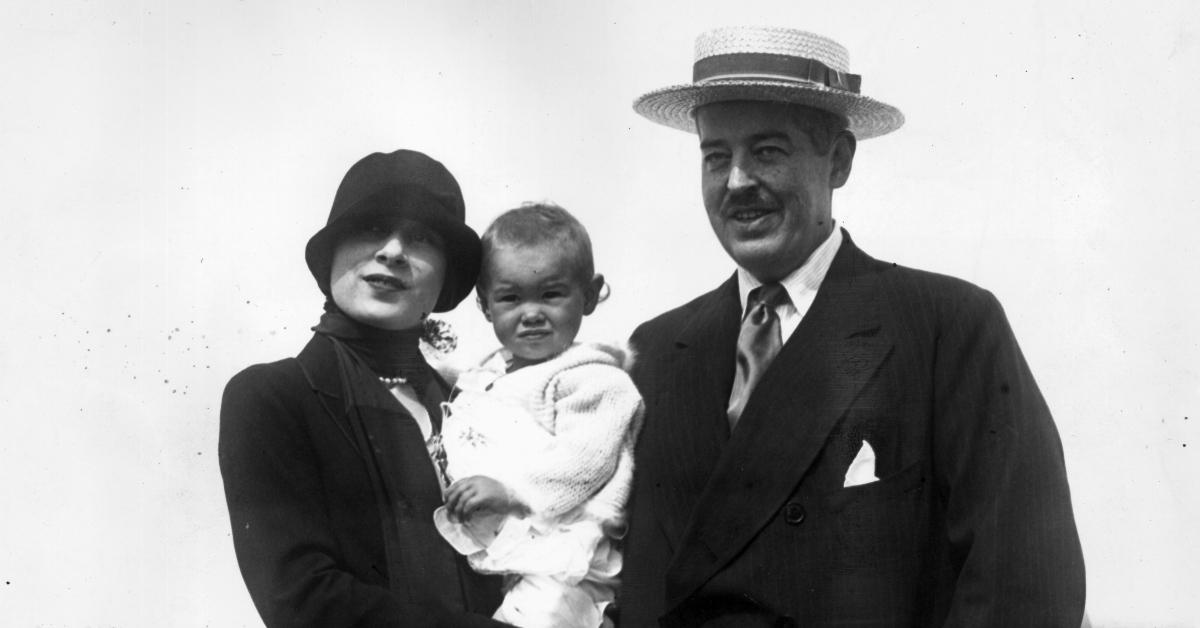The Vanderbilts family net worth has long been a topic of fascination for historians, economists, and the general public alike. This iconic American family, known for its vast fortune accumulated through shipping and railroads, has left an indelible mark on the nation's economic landscape. The story of the Vanderbilts is not just about wealth but also about how they maintained and expanded their fortune over generations.
From Cornelius Vanderbilt, the patriarch who laid the foundation of this empire, to his descendants who continued to build on his legacy, the Vanderbilts have been a symbol of opulence and influence. Their net worth, which was once among the largest in the world, has been the subject of numerous studies and discussions.
This article delves into the financial legacy of the Vanderbilts, exploring their rise to prominence, the strategies they employed to grow their wealth, and the current state of their fortune. By the end of this piece, you will have a comprehensive understanding of the Vanderbilts' financial journey and how it continues to shape the modern world.
Read also:Belton Stage Park
Table of Contents
- Introduction
- Biography of Cornelius Vanderbilt
- Early Wealth Accumulation
- Building the Railroad Empire
- Wealth Distribution Among Descendants
- Modern Vanderbilts Family Net Worth
- Philanthropy and Legacy
- Contemporary Influence and Fame
- Challenges Faced by the Family
- Conclusion
Biography of Cornelius Vanderbilt
Early Life and Career
Cornelius Vanderbilt, often referred to as "The Commodore," was born on May 27, 1794, in Staten Island, New York. He grew up in a modest family and left school at the age of 11 to work on his father's ferry service. By the age of 16, he had already started his own ferry business, marking the beginning of his entrepreneurial journey.
Over the years, Vanderbilt expanded his operations, venturing into steamboats and eventually dominating the shipping industry. His relentless pursuit of success and strategic business acumen laid the groundwork for the Vanderbilt fortune.
| Full Name | Cornelius Vanderbilt |
|---|---|
| Date of Birth | May 27, 1794 |
| Place of Birth | Staten Island, New York |
| Occupation | Entrepreneur, Shipping Magnate, Railroad Tycoon |
| Net Worth at Death | $100 million (equivalent to $3.7 billion today) |
Early Wealth Accumulation
Before the Vanderbilts became synonymous with wealth, Cornelius Vanderbilt had to navigate the challenges of building a business from scratch. His early ventures in the shipping industry were fraught with competition and economic uncertainty.
Despite these obstacles, Vanderbilt's innovative approach to cost-cutting and efficiency allowed him to undercut competitors and dominate the market. By the mid-19th century, he had established himself as a leading figure in the shipping industry, setting the stage for his future endeavors in railroads.
Building the Railroad Empire
Expansion Strategies
Cornelius Vanderbilt's transition from shipping to railroads was a masterstroke of strategic planning. Recognizing the potential of rail transport, he invested heavily in key railroad companies, including the New York Central Railroad.
Through mergers and acquisitions, Vanderbilt consolidated his control over major rail lines, creating an extensive network that connected major cities across the United States. This expansion not only increased his wealth but also solidified his position as one of the most influential industrialists of his time.
Read also:Teach Me First Honeytoon Free The Ultimate Guide To Unlocking Your Creativity
Wealth Distribution Among Descendants
Upon his death in 1877, Cornelius Vanderbilt left the majority of his fortune to his eldest son, William Henry Vanderbilt, who further expanded the family's wealth. However, subsequent generations faced challenges in maintaining the family's financial dominance.
By the early 20th century, the Vanderbilt fortune had been divided among numerous descendants, leading to a decline in individual wealth. Despite this, the family's legacy of opulence and extravagance continued to be celebrated through their iconic mansions and philanthropic endeavors.
Modern Vanderbilts Family Net Worth
As of the latest estimates, the combined net worth of the Vanderbilt family is estimated to be around $100 million. While this figure pales in comparison to the family's peak wealth, it still represents a significant legacy of wealth and influence.
- The family's wealth is now spread across numerous branches, with each branch managing its own assets.
- Modern Vanderbilts have diversified their investments, focusing on real estate, art, and other high-value assets.
- Despite the decline in individual wealth, the family continues to maintain a prominent position in American society.
Philanthropy and Legacy
Contributions to Society
The Vanderbilts have a long history of philanthropy, with numerous institutions bearing their name. Cornelius Vanderbilt's donation of $1 million to establish Vanderbilt University is just one example of the family's commitment to education and community development.
In addition to education, the Vanderbilts have supported various charitable causes, including healthcare, arts, and cultural preservation. Their generosity has left a lasting impact on American society, ensuring that their legacy extends beyond mere wealth accumulation.
Contemporary Influence and Fame
In modern times, the Vanderbilts continue to capture public attention through their involvement in media and entertainment. The popular TV series "The Vanderbilts" has brought the family's storied history to a new generation of viewers, reigniting interest in their financial legacy.
Beyond media, the family's influence can still be seen in the preservation of their historic properties, such as the Biltmore Estate in North Carolina, which attracts millions of visitors each year.
Challenges Faced by the Family
While the Vanderbilts have enjoyed immense wealth and influence, they have also faced numerous challenges over the years. Economic downturns, legal disputes, and internal family conflicts have all contributed to the decline of the family's fortune.
Despite these challenges, the Vanderbilts have demonstrated remarkable resilience, adapting to changing circumstances and maintaining their place in American history.
Conclusion
The Vanderbilts family net worth remains a testament to the power of entrepreneurship, strategic planning, and legacy building. From Cornelius Vanderbilt's humble beginnings to the family's current position in society, their story is one of triumph and perseverance.
We invite you to explore more about the Vanderbilts and their impact on American history. Feel free to leave a comment or share this article with others who may be interested in the fascinating world of the Vanderbilts.
For further reading, consider exploring other articles on our website that delve into the lives of influential families and their contributions to society.
References:
- Harr, John J., and Peter J. Johnson. American Colossus: The Triumph of Capitalism, 1865-1900. Random House, 1997.
- Stiles, T.J. The First Tycoon: The Epic Life of Cornelius Vanderbilt. Alfred A. Knopf, 2009.
- Vanderbilt University. "History of Vanderbilt University." https://www.vanderbilt.edu/about/history/.


